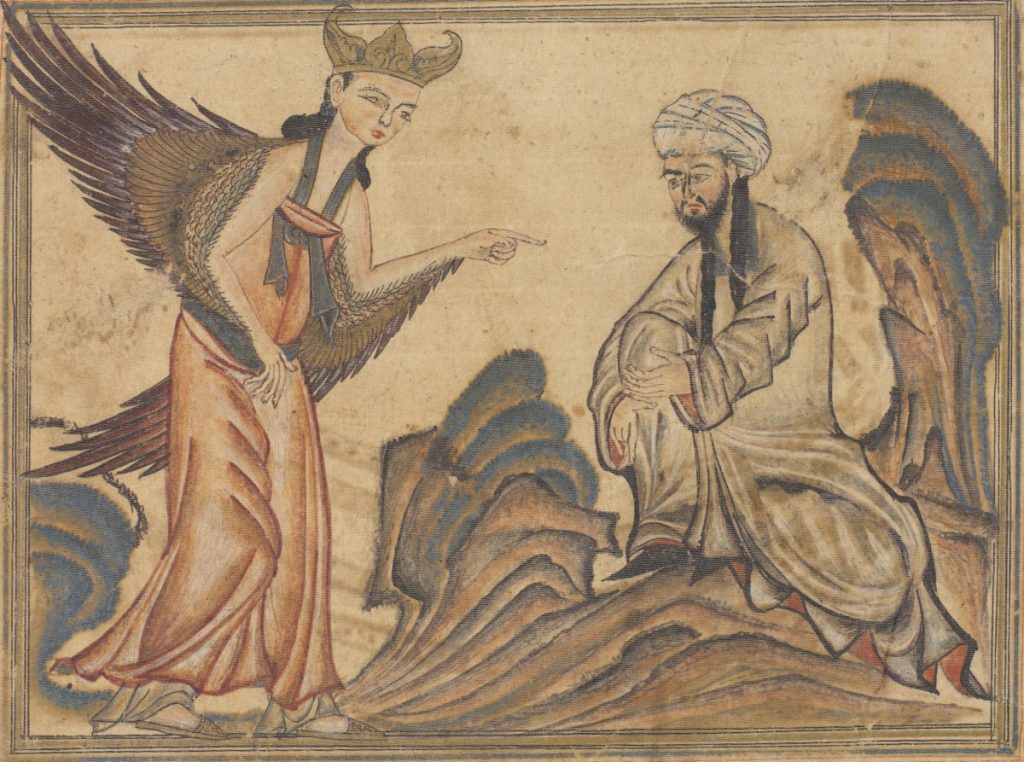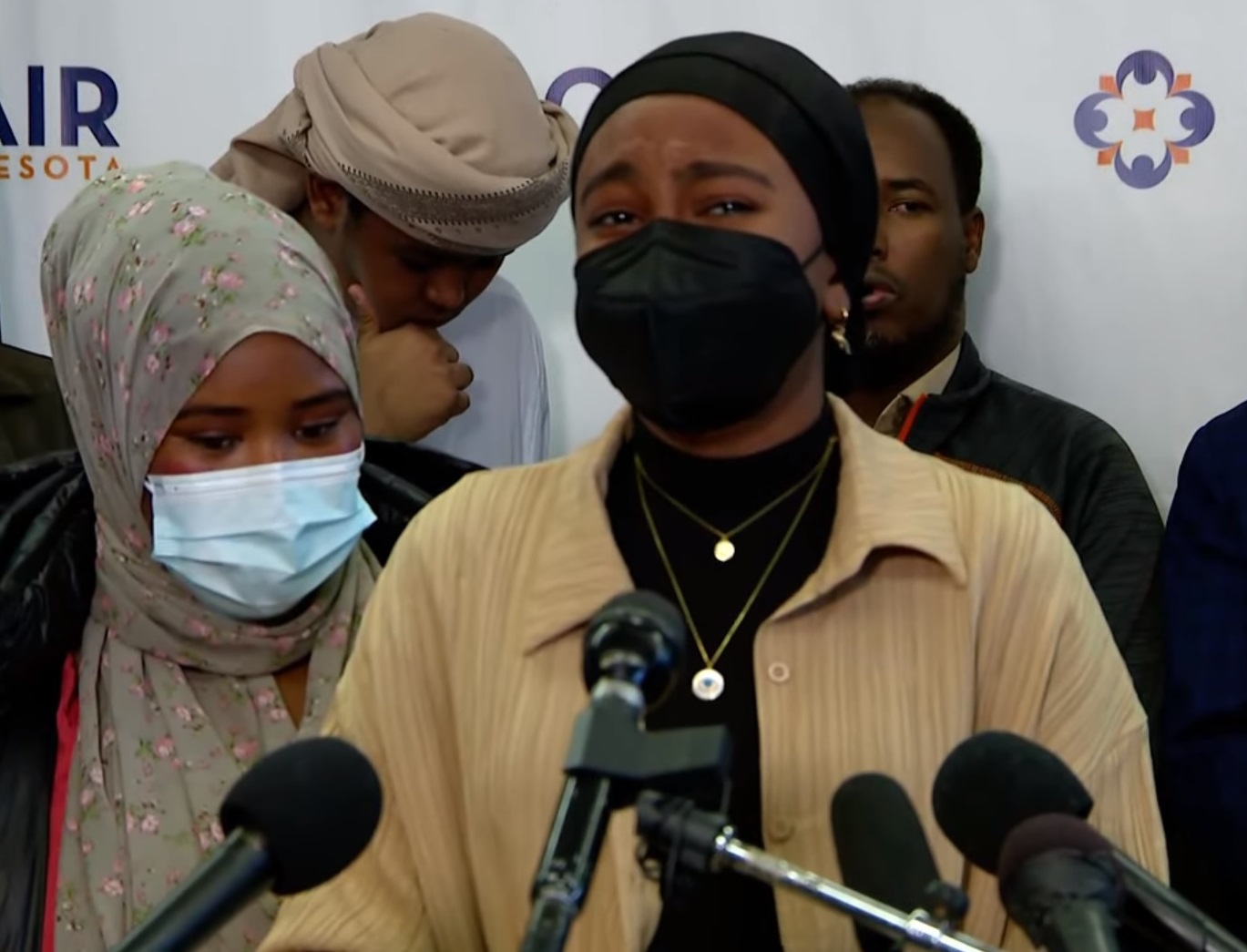Following Hamline University’s decision not to renew the contract of Erika López Prater, an adjunct professor who had shown paintings of Islam’s prophet Muhammed from the 14th and 16th centuries to her world art class, Muslims and Islamists argued that the professor had not been Islamophobic. Hamline University initially sided with the Muslim student who had complained about the professor. However, perhaps due to the lack of Muslim support on a national level, whether from organizations or imams, Hamline’s president and its chair issued a joint statement on January 18, 2023 stating that the use of the term “Islamophobic” was “flawed.” An American imam previously characterized the university’s administration as “weasels with no character nor principle” for indulging the student’s behavior.

López Prater’s dismissal has been covered under a number of angles, including the threat posed to academic freedom, the dangerous converging of “religion and neoliberal diversity tactics,” or the university’s “shocking imposition of narrow religious orthodoxy in the classroom.” What appears, however, not to have been discussed is the mostly absent Muslim support for the university’s leadership; even American Islamists were for the most part conspicuously silent on an issue that has generated article after article. While some of these articles gave the impression that Hamline’s aggrieved student was expressing a religious sentiment held by very conservative Muslims, the rare comments from American imams were critical of both the student and the university.
When the Hamline controversy came into national focus earlier this month, it was perhaps reasonable to assume that the student was motivated by Islamist views and to expect Islamists to applaud university officials for determining that the incident had been “Islamophobic.” And yet, there was little evidence that the student’s complaint was inspired by a zealous determination to impose Islamic law. When the student, Aram Wedatalla, who is also president of Hamline’s Muslim Students’ Association chapter, spoke to the university’s newspaper, she said that “as a Muslim, and a Black person, I don’t feel like I belong” and complained that the university community did not “value her as a member.”
Admittedly, Wedatalla did initially receive support from local Muslims but it quickly became clear that few other coreligionists would take this position. During a January 11, 2023 press conference, Jaylani Hussein, director of the Council on American-Islamic Relations’ (CAIR) Minnesota branch, defended universities’ right “to restrict speech that promotes hate or discrimination” which, according to him, included the display of Islamic art depicting the Prophet.
Hussein was accompanied by Wedatalla and local imams of East African origin. Unintentionally illustrating the divide between foreign-born imams and American Muslims, imam Hassan Jama explained that when “[they] had [grown] up back home in Somalia, [they] never saw any images whatsoever.” When asked about the Muslim academics defending the Hamline professor, Jama dismissed them as “ignorant” and accused them of having “weak faith.” Referring to the image, Jama concluded that “whether you call it academic freedom or freedom of speech, we will never accept it as Muslims.”
Whether you call it academic freedom or freedom of speech, we will never accept it as Muslims.
Imam Hassan Jama
At the time, both Hussein and Wedatalla highlighted the supposed impact that the Hamline incident would have on Muslims everywhere.
Between sobs, Wedatalla claimed that “across the world,” “Muslims thousands of miles away” would “feel a certain pain” over their religion being targeted. The Hamline student added that “it breaks my heart that I have to stand here to tell people that something is Islamophobic and actually hurts all of us, not only me.” And throughout the press conference, Hussein emphasized the far-reaching consequences of the incident, claiming to have heard “from people globally.” Hussein insisted that “it’s still going to impact more because the incident has become international.”
While support for Professor López Prater has certainly become international, Wedatalla and Hussein seem to have overestimated Muslim approval of their cause.
The main supporter of Hamline University’s decision outside of the U.S. appeared to be Roshan Salih, editor of the British Islamist publication 5 Pillars. As soon as he learned about the incident, Salih commended the non-Muslim president of Hamline University for “taking into consideration the stipulations of the Shariah, far more than many prominent Muslim commentators.” He then asserted that Muslims “can either choose to defend the honour of the Prophet (pbuh) or [they] can side with Islamophobes, religion-haters and secular fundamentalists who are attacking the university.”
A few days later, he predicted that the university would “cave under [the] weight of pressure” due to the silence of genuine Islamic scholars and called for “US Muslim voices to be condemned.” An increasingly frustrated Salih complained that “the absence of mainstream scholarship on this is scandalous” and lamented the “shocking silence from scholars.”
Salih must have been infuriated to see the reactions of American Muslim organizations. The Muslim Public Affairs Council (MPAC) expressed its support for the professor who, according to MPAC, “should be thanked for her role in educating students, Muslim and non-Muslim alike.” And CAIR-National stated that it saw “no evidence” that López Prater had engaged in Islamophobic conduct. Evidently distancing from the Minnesota chapter, CAIR noted that “any past comments that do not align with this statement do not reflect our organization’s stance.”
American Muslim scholars did not agree with Salih either. When well-known Islamist imam Shadee Elmasry expressed his opinion, it was to denounce the university’s administration for being “spineless,” having “zero character” and “completely buckling to a woke agenda.” Elmasry explained that while he believed such pictures to be “haram” [forbidden], students had signed up to attend a secular university, not “Hamline Sharia University.” Exasperated that this image painted by a Muslim could be misrepresented as an “attack on faith,” Elmasry asked: “So all the atheism is not an attack on your faith?”
Elmasry and Tennessee-based imam Anwar Arafat, who also discussed the subject in his own video, both thought that the student’s and the university’s actions would have negative consequences for Muslims. Elmasry argued that the student’s complaint was “going to spark a movement against the Prophet” and noted that she was “responsible for this.” Meanwhile, Arafat lamented that what had happened in Hamline “makes us look like we’re out to get revenge on anyone we don’t agree with” and regretfully noted that “we’ve made enemies of a lot of academics, we made them scared they might get fired for showing depictions of the Prophet.” The imam wondered what would now happen “when we do have cases of actual Islamophobia?”
Arafat also pointed out that the student’s ignorance about Muslims having painted prophet Muhammad “[looked] really bad” and suggested that she did not know her “history or heritage” beyond her “little group”, concluding that this was “problematic.” Similarly, Muqtedar Khan, a professor at the University of Delaware, remarked during an online discussion that by calling the depiction Islamophobic, “we are erasing a segment of our own diversity, we are erasing our past.”
These positions are entirely at odds with CAIR-MN’s statements and indeed the organization was frequently criticized. Regarding Jaylani Hussein dismissing Muslim professors’ support for López Prater by claiming that a class could also be taught about how “Hitler was good,” Elmasry was puzzled: “ I don’t get these people. Mr. CAIR, you should never utter the word Hitler in a conversation about [Islam’s prophet] Muhammad.” Arafat noted that “part of the problem is that CAIR got involved as well, we’ll just leave it at that.” And during the aforementioned discussion organized by Muqtedar Khan, Dr. Hyder Khan condemned CAIR-MN for giving its opinion “without consultation from prominent scholars in the community.”
Martha Lee is a research fellow for Islamist Watch, a project of the Middle East Forum.
